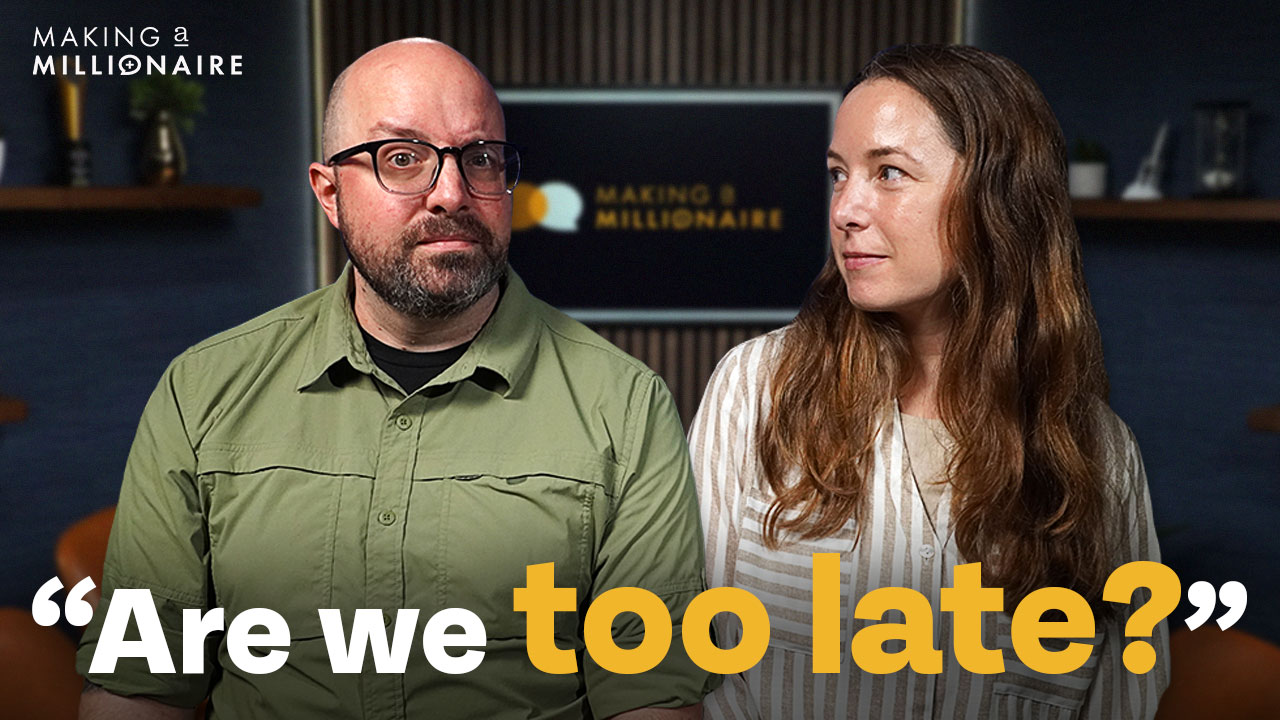Oh, this next one has a great name, Money Guy Tumblr Chaser. Has a question next, so it's his lucky day. You name it and claim it. The question is, we have a healthy emergency fund and we max out 401K contributions, which is awesome. But we have a hard time spending for enjoyment. Is this a common problem you see with your clients, and do you have any advice?
Is it a common problem? Yes, absolutely. One of the hardest, one of the hardest things is when you are a financial mutant. You are naturally just hardwired to be a saver, to squeeze, to be tight, and to be frugal. So, it's really difficult to shift that. I mean, one of our favorite—you know, people think that financial advisors, one of the things we always try to do is tell people, "Save more money, save more money, save more money." By the way, I hate you. I'm over here, right, and [inaudible] keep going. Oh, so I mean, we literally use the same language. They think that we want to tell you to save, and we do. We like you save more money. But one of our most favorite parts of our job is when we get to tell retirees, "Hey, go spend more. Hey, you can take the trip. Hey, you can buy the thing. Hey, you can have the upgrade. Hey, you can fill in the blank." So, it's really, really difficult to shift that mentality.
So, without stealing any more of your stuff, here's my question for you, Brian. You used to be a self-professed tightwad, but way back in the day, we actually thought that we would, like, call ourselves "tightwads." But there is a stage of life that you reach where maybe you can graduate past being a tightwad. And I think that mentality shift is very similar to what Money Guy Tumblr Chaser is asking. Here is, like, how—what are some protocols or what are some things I can do to allow myself to do those things? Yeah, by the way, this is a great threshold. And it's hard to give up your tightwad card. But I can tell you, if you do it right, you'll come out on the other side feeling very happy with it. But I don't want you to just immediately do it. You have to do some homework first.
You gotta make sure that you really are at this threshold, and this will probably help you with your significant other, because there might be some friction in the relationship if you're tight, they're not as tight, and you're still holding them up. I'm amazed. I had—he's now a client, he was a friend—but he was telling me that his spouse was getting so mad because he was making her share the receipts for just about anything and everything she spent, and she just was fed up with it, didn't want to do it anymore.
So, how do you actually get beyond this? First, here's the homework part. You gotta know actually what you're saving for. And that's why we, you know, people wonder why we come up with courses. The
"Know Your Number" course was designed because we were thinking about this. People need to know, are you on the curve, behind the curve, or ahead of the curve with your personal finances? So, if you go to
learn.moneyguy.com, we've actually created a course called
"Know Your Number." Not only a course, it's a tool so you can actually calculate and figure out what actually you need. And then once you know that number and you can kind of know if you're ahead of the curve, behind the curve, then you can look at your lifestyle and figure out what's necessary.
And this is kind of the point I got to where I was like, "What am I doing?" You know, there is no reason to go on vacation in this way or do travel this way or make this personal decision in my household this way if we're... Because you're going to take it with you. And once you've fulfilled all those goals, it's actually very liberating to do the homework, to know, "Yeah, this is the point. This is kind of Step Eight of the
Financial Order of Operations, where you get to think about all the prepaid expenses, a great big beautiful tomorrow. If you want to buy a nicer car, that's okay. A new, nicer car. This is the part where you get to do all the daydreaming and really think about how you want to do it well."
And that's what I like. But—and this will probably help you and your relationship tremendously—and I mean, I enjoy going to nice dinners. I enjoy going on nicer vacations. And it's so hard to be removed from the tightwad life that kind of got me here. But then I look at it with fondness because I know I would not be able to do all this stuff if I hadn't made that sacrifice back in my 20s and 30s that now I get to live life in a completely different way. So, kudos. I can't remember the witty title. Something like, you know, but you've done the hard work. Now finish the drill. Figure out where you are on your savings objective, and then start enjoying the fruits from this. So, this is the time to actually celebrate. And it's a fun—by the way, here's another suggestion for you, because your spouse is probably a hot dog. We're going to do what Dad government—I know. This is what I was about to say. Good. Well, good. I get to steal... The fact that you're going to now be able to go on a date night and come up with your next three-year travel plans. Do it. You know, this is the because when you're a tightwad, it's not very sexy. But you know what is sexy? When now you've built enough abundance that you get to go on dates talking about how we're going to actually travel and do things, which is great.
With my daughter, who's the intern this summer being here, is that these are the fun things that we get to do. And she gets the fruit from as well that makes life fun. And being a financial mutant, fun. Or maybe your thing is not travel. I mean, like with the stage of life right now, you know, we can't exactly leave the bay, so I've me and my wife actually want to do a few rooms in the house a different way. And I want to just—I was like, "Okay, great. Those are some things." If you sit down and have those conversations with your spouse, it assigns a reason for those dollars. So, savers, we like to think about, my reason for the dollars is going in the same as going to savings. You can do the same thing with your consumption and make it feel like you're not just frivolously living, if you have a plan in place for how you're going to spend and spend well.














